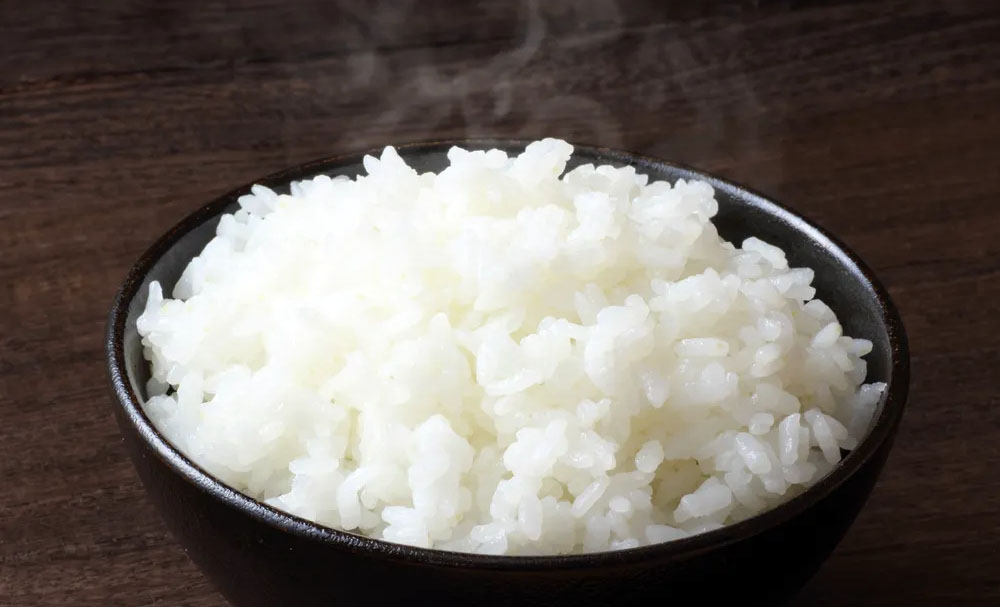Health
Why leftover rice should not be reheated

Why leftover rice should not be reheated
Food safety experts say that starchy foods such as cooked rice and pasta could start going bad after just one or two days even if they are refrigerated.
Millions of Nigerians suffer foodborne illness every year ending up in the hospital or worse. Reheated rice syndrome is food poisoning caused by Bacillus cereus, a bacteria that spreads in improperly cooled starches. Rice is a major staple in Nigeria, but dietitians warn that it should not be reheated and must be consumed on the day it is cooked due to the risk of the harmful bacteria. Many people rely on leftovers for quick meals, but foods like rice should only be warmed once, the expert noted.
The reasons for this are, first, reheating can alter the chemical makeup of food, leading to toxic substances that may harm kidneys and other organs. Second, cooling certain foods before reheating can promote the growth of deadly bacteria like E. coli and listeria.
Rice is regarded as one of the most dangerous foods to reheat, the experts warn. When rice cools, it may develop Bacillus cereus, a type of bacteria found in soil and vegetables. The spores can survive heating, therefore reheating does not eliminate the risk of illness, which can include vomiting and diarrhea.
To minimise this risk, rice should be stored in the fridge within two hours of cooking, ideally in an airtight container. However, leaving rice out for extended periods can lead to bacteria growth.
READ ALSO:
- IGP opposes bill seeking police exit from contributory pension scheme
- Couple arrested in Anambra for threatening residents with abduction, murder
- Ndume threatens to quit APC over Tinubu’s tax reform bills
A 20-year-old man in Belgium reportedly died from ‘fried rice syndrome’ after reheating spaghetti he had left out for five days. He experienced severe symptoms shortly after eating, including nausea and abdominal pain, and passed away within 10 hours. A post-mortem examination revealed liver damage that led to organ failure.
Cooked rice can develop Bacillus cereus bacteria that can cause vomiting, diarrhea, and stomach cramps. Although rice can be stored for months on the shelf, cooked rice only lasts about a day in the fridge before it goes bad due to the presence of Bacillus cereus, which is often found in raw foods like potatoes, peas, beans, and some spices.
The bacteria are especially prevalent in rice or grains that have been left out at room temperature or in a refrigerator that is too warm, but they can also grow in leftover rice kept at safe temperatures.
Cooking rice does not eliminate the spores, so if cooked rice or pasta is left out at room temperature, the spores can multiply quickly and create harmful toxins. Symptoms from Bacillus cereus infection include vomiting, diarrhea, and stomach cramps. Elderly individuals and those with weakened immune systems are at a higher risk of getting infections from this bacteria.
Health
Studies show menopause can reduce women’s memory, concentration by 40%

Studies show menopause can reduce women’s memory, concentration by 40%
Women going through the menopause may experience a significant decline in memory, concentration, and the ability to carry out daily tasks, with research suggesting a drop of up to 40 per cent in cognitive performance. This revelation was highlighted at a recent international conference on women’s health.
Experts warn that as many as four in ten women could be affected, making it increasingly difficult to manage work responsibilities or daily routines. Researchers also note that younger women may experience temporary concentration difficulties at certain points in the menstrual cycle due to hormonal changes, performing better when oestrogen levels peak just before ovulation.
Professor Martha Hickey, an obstetrics and gynaecology expert at Melbourne University, told the American Society for Reproductive Medicine in Boston that compelling evidence now links menopause with declines in attention span, learning ability, and memory function. She identified possible causes, including a drop in oestrogen levels and sleep disruption from night sweats and hot flushes.
READ ALSO:
- South Africa Horror: Gunmen Kill 11 in Pretoria Hostel Shebeen Attack
- Ex-AGF Abubakar Malami denies allegations of terrorism financing, calls report misleading
- Nigerian woman sparks outrage for refusing chemotherapy despite ₦30 million donations over religious Beliefs
“Oestrogen decline during the menopause may affect key areas of the brain responsible for memory and concentration, including the hippocampus, midbrain, and prefrontal cortex,” Professor Hickey said. Brain scans have shown changes in these regions in menopausal women, though she noted that previous research likely underestimated the effects due to less sensitive testing methods.
Professor Hickey is currently studying 105 women in the US undergoing oophorectomy (surgical removal of ovaries), which induces menopause, to further explore cognitive effects. Earlier studies, including a 2001 survey of 12,450 US women, found that post-menopausal women were 40% more likely to report forgetfulness. Another US study involving 16,000 women found that four in ten admitted to experiencing memory problems.
The average age of menopause is 52, although it can occur in the 30s or 40s. The condition is marked by the cessation of ovarian oestrogen production, which also leads to mood swings, hot flushes, and night sweats.
Studies show menopause can reduce women’s memory, concentration by 40%
Health
Scientists Identify Key Immune “Exhaustion Switch,” Opening New Path for Powerful Cancer Treatments

Scientists Identify Key Immune “Exhaustion Switch,” Opening New Path for Powerful Cancer Treatments
In a major scientific breakthrough that could transform cancer care, researchers at Weill Cornell Medicine have uncovered how tumours weaken the body’s immune defences—and how blocking that process can supercharge treatment. The findings, published in Nature Immunology, reveal a critical pathway that drives T cell exhaustion, a major obstacle in modern cancer immunotherapy.
According to the study, cancer cells exploit a molecular signal to drain T cells of their strength, reducing their ability to attack tumours. By blocking this signal, scientists were able to keep T cells active and dramatically enhance their tumour-fighting capacity.
“Our dream is to revive exhausted T cells so the immune system itself can defeat cancer. This discovery brings that future closer,” said co-senior author Dr. Taha Merghoub, noting that T cell exhaustion limits the long-term success of immunotherapies even in patients who initially respond well.
READ ALSO:
- Turkey Football Betting Scandal: 46 Arrested as Match-Fixing Probe Widens
- Four Teenagers Killed in Banki Explosion as Borno Police Probe Deadly IED Blast
- Osimhen Scores Brace as Galatasaray Edge Samsunspor 3-2 in Turkish Super Lig Thriller
The researchers focused on CD47, a protein known as the immune-evading “don’t eat me” signal used by cancer cells. Unexpectedly, the team discovered that T cells also produce CD47—and its levels surge when T cells become exhausted. Tests in mice revealed that animals lacking CD47 developed slower-growing tumours, showing the protein plays a powerful internal role in immune suppression.
Tumours appear to worsen this phenomenon by releasing thrombospondin-1, a protein that binds to CD47 and further weakens T cells. “Remove CD47 or thrombospondin-1, and T cells stay strong,” Merghoub said.
To counter this mechanism, researchers tested TAX2, a peptide that prevents CD47 and thrombospondin-1 from interacting. Mice treated with TAX2 displayed slower growth of melanoma and colorectal tumours, more active T cells, and stronger immune responses. TAX2 also significantly enhanced the effectiveness of PD1 immunotherapy, one of the most widely used cancer treatments.
Lead author Dr. Chien-Huan Weng described TAX2 as a “proof-of-concept,” adding that further work is underway to create safe and targeted ways to block this newly identified exhaustion pathway in human patients.
Scientists say the approach could form a powerful standalone therapy or boost existing immunotherapies, marking one of the most promising advances yet in the fight against cancer.
Scientists Identify Key Immune “Exhaustion Switch,” Opening New Path for Powerful Cancer Treatments
Health
Nigeria joins global ICH elite as NAFDAC achieves full international regulatory Status

Nigeria joins global ICH elite as NAFDAC achieves full international regulatory Status
Nigeria has recorded a major milestone in global health regulation as the National Agency for Food and Drug Administration and Control (NAFDAC) has secured full membership of the International Council for Harmonisation of Technical Requirements for Pharmaceuticals for Human Use (ICH). The achievement positions Nigeria among the world’s most advanced national regulatory authorities and marks a transformative step for the country’s pharmaceutical sector.
The announcement was made during the ICH Assembly held in Singapore, where Nigeria was confirmed as the 24th out of only 25 national regulatory authorities (NRAs) globally recognised for their commitment to harmonised international pharmaceutical standards.
NAFDAC Director General, Prof. Moji Adeyeye, described the development as a “historic breakthrough for Nigeria and the African continent,” noting that full membership would significantly boost the availability of high-quality, safe, and effective medicines for Nigerians.
READ ALSO:
- Supreme Court Strikes Out Osun Suit on Withheld Local Govt Allocations
- DSS Arrests Doctor Providing Medical Support to Bandits in Kwara State
- BREAKING: Rivers Assembly Speaker, 15 Members Defect From PDP to APC
She said:
“Full ICH membership means Nigerians will have better access to high-quality medicines. It confirms that our regulatory scientists can stand shoulder-to-shoulder with the best in the world.”
Nigeria’s journey to full ICH status began in 2022 after the agency secured Observer status and later participated in the 2023 ICH meeting in Vancouver, Canada, where NAFDAC made a formal presentation as part of the evaluation process.
Over the last two years, NAFDAC underwent extensive capacity-building, including training on multiple ICH guidelines, membership in expert working groups, and the hosting of a major international workshop in Lagos in April 2025 on the ICH M13A Bioequivalence Guideline.
Adeyeye credited the agency’s success to a “methodical and structured approach,” supported by Northeastern University, Boston, and the Bill & Melinda Gates Foundation.
Nigeria’s Ambassador to Singapore, H.E. Omayuli Francisca Kemi, praised NAFDAC for demonstrating “leadership, resilience, and expertise” in earning a place on the global regulatory stage.
Full ICH membership grants NAFDAC authority to contribute directly to the formulation of international pharmaceutical standards, while enhancing Nigeria’s capacity to regulate medicines, accelerate access to innovative therapies, and improve confidence in local pharmaceutical manufacturing.
Adeyeye also acknowledged the Federal Government for extending her tenure, saying the continuity was crucial to achieving this milestone.
“We will continue to safeguard the health of the nation—now with the full strength of the ICH global community behind us,” she declared.
NAFDAC expressed appreciation to President Bola Ahmed Tinubu, the Minister of Health and Social Welfare, and its international partners for their support. The agency reaffirmed its commitment to full implementation of ICH standards, strengthening Nigeria’s regulatory system, and advancing pharmaceutical innovation and production.
Nigeria Joins Global ICH Elite as NAFDAC Achieves Full International Regulatory Status
-

 News3 days ago
News3 days agoDefence Minister Unveils New Security Strategy, Orders Troops to Shoot Armed Bandits on Sight
-

 metro3 days ago
metro3 days agoTeam Justice accuses authorities of attempting to exclude Mohbad’s father from DNA test process
-

 metro2 days ago
metro2 days agoSenate Launches Emergency Probe into Widespread Lead Poisoning in Ogijo, Lagos/Ogun
-

 International3 days ago
International3 days agoMeta to Block Under-16s from Instagram, Facebook, Threads ahead of Australia’s World-First Youth Social Media Ban
-

 metro3 days ago
metro3 days agoShocking confession: Boyfriend admits luring FRSC officer, child to death in Osun ritual murder
-

 Sports3 days ago
Sports3 days agoLeeds United Stun Chelsea 3-1 at Elland Road to Climb Out of Relegation Zone
-

 News2 days ago
News2 days agoBREAKING: Tinubu Sends Fresh Ambassadorial Nominations to Senate, Names Ibas, Ita Enang, Dambazau
-

 News3 days ago
News3 days agoEmber-months safety: Carloha, FRSC intensify campaign against distracted driving



